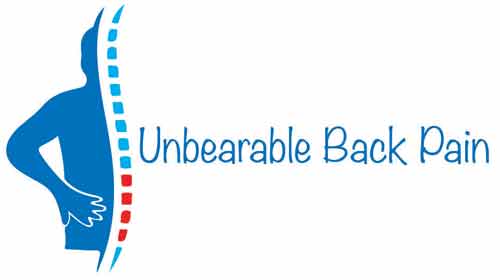
Crohn’s disease is a chronic inflammatory condition of the gastrointestinal (GI) tract, affecting millions worldwide. While its primary symptoms involve the digestive system, Crohn’s disease can have systemic effects, including causing back pain. Understanding the multifaceted nature of Crohn’s and its potential to impact areas beyond the gut is crucial for comprehensive management. This article explores the connection between Crohn’s disease and back pain, providing insights into living with and managing this complex condition.
Crohn’s disease is a type of inflammatory bowel disease (IBD) that causes inflammation of the digestive tract, leading to a range of symptoms. The inflammation can occur anywhere from the mouth to the anus, but it most commonly affects the end of the small intestine (ileum) and the beginning of the colon. Crohn’s disease is a chronic condition, meaning it persists for a long time and typically involves periods of flare-ups and remission.
The symptoms of Crohn’s disease can vary widely among individuals and can range from mild to severe. Common symptoms include:
- Abdominal pain and cramping
- Persistent diarrhea
- Rectal bleeding
- Weight loss and malnutrition
- Fatigue
- Fever
Crohn’s disease is not limited to the GI tract; it can have systemic effects due to the chronic inflammation it causes. This systemic nature means Crohn’s can affect other body parts, including the joints, skin, eyes, and liver. For example, individuals with Crohn’s may experience arthritis, skin rashes, eye inflammation, and liver disorders.
Understanding the comprehensive impact of Crohn’s disease is essential for effective management. Recognizing that Crohn’s can affect various aspects of a person’s health, including their musculoskeletal system, is key to providing holistic care. This awareness helps in identifying and addressing symptoms that may not initially seem related to the digestive system, such as back pain.
The Relationship Between Crohn’s Disease and Back Pain
Back pain is a less commonly recognized symptom of Crohn’s disease but can significantly affect the quality of life. The relationship between Crohn’s disease and back pain can be attributed to several factors, including inflammation, joint involvement, and secondary effects of the disease.
Inflammation is the hallmark of Crohn’s disease and can extend beyond the gut, affecting the spine and joints. Inflammatory arthritis, including spondyloarthritis, is a common extraintestinal manifestation of Crohn’s. This form of arthritis can cause inflammation in the spine (spondylitis) and the sacroiliac joints (sacroiliitis), leading to back pain and stiffness.
Several studies and case reports highlight the connection between Crohn’s disease and back pain. Research indicates that a significant percentage of individuals with Crohn’s experience some form of joint pain, with back pain being a frequent complaint. For instance, a study published in the journal “Inflammatory Bowel Diseases” found that approximately 20-30% of Crohn’s patients have axial involvement, which includes the spine and sacroiliac joints.
Given the potential for Crohn’s disease to cause back pain, it is crucial to adopt a holistic approach to symptom management. This means addressing not only the digestive symptoms but also the musculoskeletal issues that may arise. A comprehensive treatment plan should involve healthcare providers from various specialties, including gastroenterologists, rheumatologists, and pain management specialists.
Living with Crohn’s disease presents numerous challenges, including dealing with chronic pain, fatigue, and the unpredictability of flare-ups. For those experiencing back pain, daily activities can become even more challenging. Pain can interfere with sleep, work, and physical activity, impacting overall quality of life.

Tips and Strategies for Managing Back Pain Associated with Crohn’s
Managing back pain in the context of Crohn’s disease requires a multifaceted approach. Here are some strategies that can help:
Medications: Anti-inflammatory drugs, pain relievers, and biologics can help reduce inflammation and pain. Click Here For Details
Physical Therapy: A physical therapist can design a tailored exercise program to strengthen the muscles supporting the spine and improve flexibility.
Exercise: Regular low-impact exercise, such as swimming or walking, can help maintain joint health and reduce pain.
Posture: Maintaining good posture can alleviate stress on the back. Ergonomic adjustments at work and home can be beneficial.
Heat and Cold Therapy: Applying heat or cold packs to the affected area can provide temporary pain relief.
Effective management of Crohn’s disease and associated back pain often requires a combination of medication, therapy, and lifestyle changes. Medications such as corticosteroids, immunosuppressants, and biologics target the underlying inflammation. Physical therapy and regular exercise help maintain joint health and reduce pain. Additionally, lifestyle changes such as stress management, a balanced diet, and adequate rest are essential components of a comprehensive treatment plan.
Living with a chronic condition like Crohn’s disease can take a toll on mental health. Support systems, including family, friends, and support groups, play a crucial role in providing emotional and practical assistance. Mental health professionals can help individuals develop coping strategies and address any anxiety or depression related to their condition.
Not all back pain in individuals with Crohn’s disease is related to the condition. However, persistent or severe back pain should be evaluated by a healthcare professional to rule out complications such as spondylitis or sacroiliitis. Recognizing these conditions early can prevent further joint damage and improve treatment outcomes.
Regular medical check-ups are essential for individuals with Crohn’s disease to monitor disease activity and manage symptoms effectively. Routine visits allow healthcare providers to adjust treatment plans as needed and promptly address any new or worsening symptoms.
Healthcare providers play a critical role in diagnosing and managing back pain in individuals with Crohn’s disease. A multidisciplinary team approach, involving gastroenterologists, rheumatologists, and pain specialists, ensures comprehensive care. Diagnostic tests such as MRI or X-rays may be used to evaluate joint involvement and guide treatment decisions.
Various resources and support networks are available for people living with Crohn’s disease. Organizations such as the Crohn’s & Colitis Foundation offer educational materials, support groups, and advocacy services. Online communities and local support groups provide opportunities to connect with others facing similar challenges and share experiences and advice.
Conclusion
Crohn’s disease is a complex condition with far-reaching effects beyond the digestive tract. Recognizing the potential for Crohn’s to cause back pain is crucial for comprehensive symptom management. A holistic approach that includes medication, therapy, lifestyle changes, and strong support systems can significantly improve the quality of life for individuals living with Crohn’s. Regular medical check-ups and timely intervention by healthcare professionals are essential in managing this chronic disease effectively. By understanding and addressing all aspects of Crohn’s disease, individuals can better navigate the challenges and lead fulfilling lives,
Here’s a little transparency: Our website contains affiliate links. This means we may receive a small commission if you click and purchase. Don’t worry, there’s no extra cost to you. It’s a simple way you can support our mission to bring you quality back relief content.”



No lie, the photo and the title caught my attention. I am not familiar with Crohn’s disease, so thank you for addressing that in the beginning of the article!
So Crohn’s disease can cause back pain? Do any of the natural remedies such as physical therapy, exercise, proper sleep or nutrition relieve these symptoms?
Hi Jake
I’m glad the article caught your attention and provided some useful information! Crohn’s disease is indeed a complex condition that can cause various symptoms, including back pain.
By integrating the natural remedies you refer to into your routine, you may find relief from back pain associated with Crohn’s disease while also improving your overall health and well-being. These are not “cures” but some people have found their daily lives have improved by adhering to them.
If you have any further questions or need more specific advice, feel free to ask.
Regards
Michael